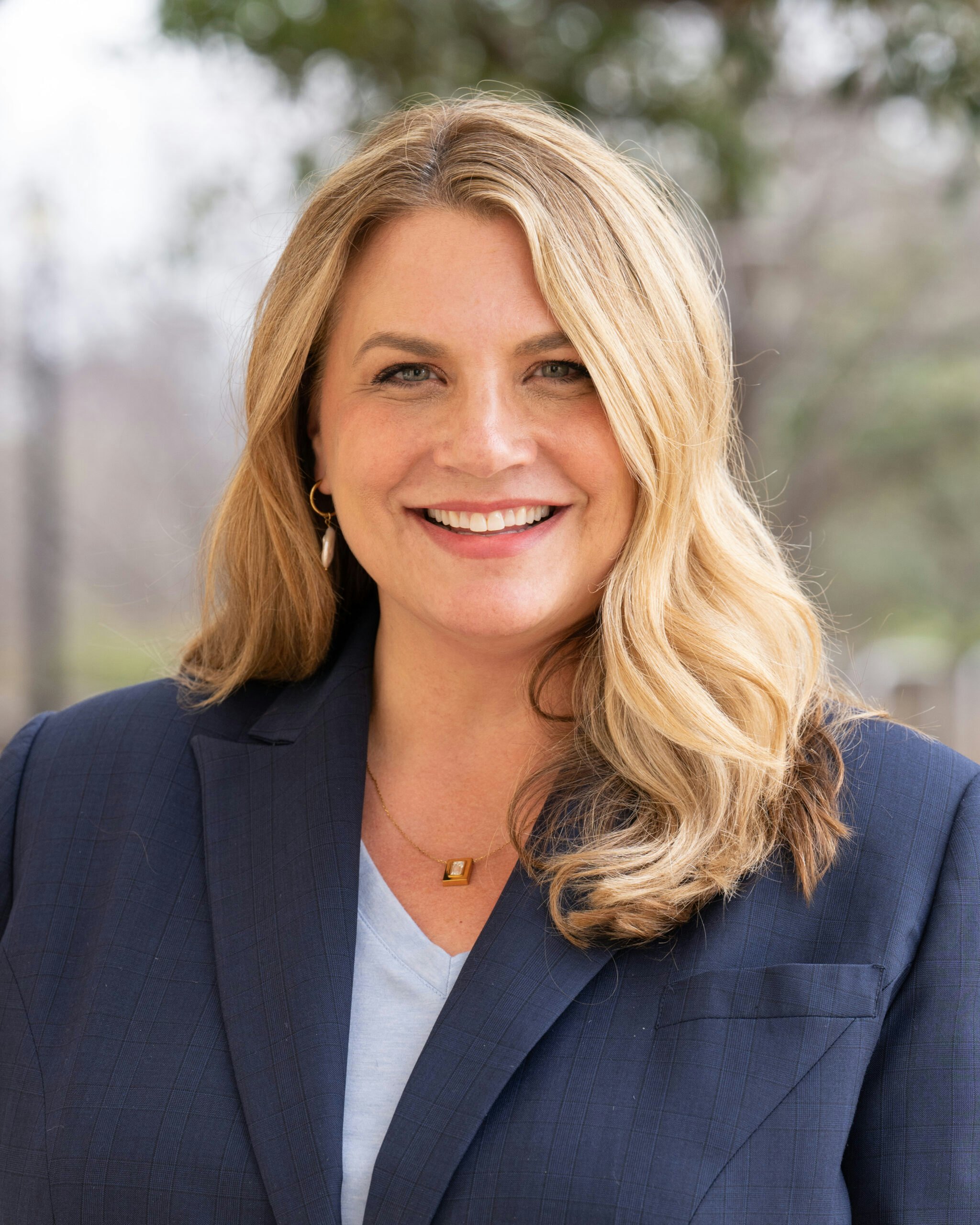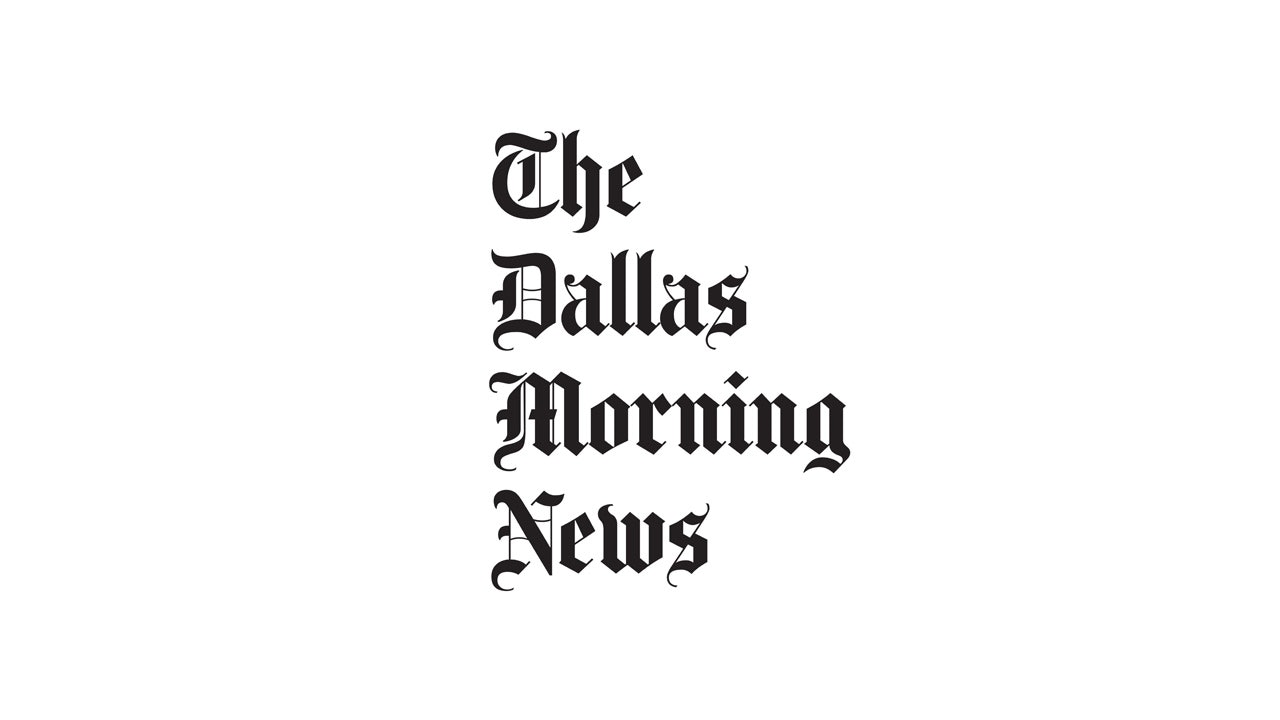Diane Tavenner shares a charter leader's perspective on accountability.
The “A” Word
Accountability simply means accepting responsibility for one’s actions. Accountability applied to schools, however, has become so polarizing that it is now the equivalent to a dirty word.
How did we get here? As with all polarizing issues, the truth requires us to look beyond the sound bites. THE “A” WORD seeks to do that through conversations with recognized education leaders.
Diane Tavenner is the founder and CEO of Summit Public Schools, a charter management organization that serves students in California and Washington State. Newsweek and U.S. News and World Report have ranked Summit among the top public schools in the nation. In partnership with the Chan Zuckerberg Initiative, Summit is now sharing its Personalized Learning Platform for free with schools across the country.
A graduate of the University of Southern California and Stanford University, Tavenner has been a teacher and an administrator in traditional public schools in California. She is a Pahara-Aspen Fellow and a Broad Academy Fellow.
In this A Word interview, she describes how Summit marries values and data to constantly improve classroom instruction and student outcomes. Summit schools use data in rapid information cycles that provide quick feedback to teachers, students, and parents alike, focusing all the while on preparing students for successful futures.
A self-described optimist about designing better accountability systems, Tavenner contends that accountability needs to expand beyond end-of-year math and reading scores. A modern accountability system would use today’s technologies to provide rapid feedback about whether students are on track for meaningful work and to become productive members of American society.
How do you define accountability? And has that definition changed over time for you?
As a society, we are all responsible for the success of every single student. Accountability in our education system is essential, and it must be aligned to support high achievement for all students.
Accountability looks different at the school level versus state level. At the school level, accountability has to be about student outcomes for each individual school and their students. At the state level, it needs to be about how we’re investing in the system to ensure we’re getting outcomes for every student.
At the school level, accountability has to be about student outcomes for each individual school and their students. At the state level, it needs to be about how we’re investing in the system to ensure we’re getting outcomes for every student.
That’s probably a non-controversial definition of accountability in education, but two other points are central to the way I think about accountability.
First, accountability cannot be one-way. It’s always reciprocal, and it must be an agreement that both sides embrace. For example, if teachers and schools are accountable for student outcomes, then districts and policymakers are accountable for providing them with the tools, training, and support to be effective. If that agreement breaks down, the accountability system won’t be effective.
Second, accountability must be embedded in an improvement cycle. If we don’t have a strategy for using accountability data to do things differently, then we are just blaming and shaming. I fundamentally believe that people and organizations are not motivated to change because they have been blamed for missing goals. They improve when we use accountability data to provide feedback and support.
Has your definition of accountability changed in any way?
I don’t know that it has changed.
As a charter leader, how have you used accountability in your work?
At Summit we use data and information to examine how we’re doing against our goals and to find ways to get better. We use accountability to ensure that we’re doing what we said we would do, and to make sure we’re constantly getting better.
At Summit we use data and information to examine how we’re doing against our goals and to find ways to get better. We use accountability to ensure that we’re doing what we said we would do, and to make sure we’re constantly getting better.
Our process starts by figuring out our shared values and the purpose of our schools. Our core value is that we believe students need to be prepared to live lives of meaning and purpose. So, we look at the skills, habits, and behaviors that students need to be successful in college and beyond our school.
We then set those as goals. And we hold ourselves accountable by designing tools that help kids get those skills, providing teachers and school leaders with the training they need to enable those conditions, and measuring everything along the way to ensure our students are on the trajectory that we want them to be on.
When we don’t meet our goals, we constantly reexamine what we’re doing. We use the data and information to get ourselves back on track towards where we want to go.
When we don’t meet our goals, we constantly reexamine what we’re doing. We use the data and information to get ourselves back on track towards where we want to go.
Is there an example of how you all have used data and other tools of accountability to reach a particular goal?
A good example is how we have reached our goal around one-to-one mentoring, which is a unique, critical part of our school model. One of our core values is that students need meaningful relationships and engagement with their broader community to live a life of purpose and a good life.
We know from science that this requires skills like the ability to have healthy interpersonal relationships. Those are driven by kids’ abilities to self-regulate, manage conflict, and build trust with others. We also know that kids who come from backgrounds with childhood trauma have a much harder time building relationships. If they have at least one stable adult relationship in school, they’re far better off.
That’s why we have designed our school model to include a one-to-one mentoring relationship for every student. The mentor stays with them for multiple years to create a relationship that’s built on trust and helps them build those skills.
We’ve structured our school schedule to include times for mentoring and tools for the teachers to be effective mentors. Then, we measure and hold ourselves accountable for those actual outcomes, giving teachers feedback and coaching on how they’re interacting with students. We make sure that we are meeting that goal.
We’ve structured our school schedule to include times for mentoring and tools for the teachers to be effective mentors. Then, we measure and hold ourselves accountable for those actual outcomes, giving teachers feedback and coaching on how they’re interacting with students.
That’s a good example, from start to finish, of how we think about the whole process of accountability.
Could you say more about how you’ve structured Summit to align mentoring with academic rigor? Often, you hear that you can only do one or the other well, given finite resources of time, people, and money. How have you managed that tension? What have you learned?
In addition to the value of relationships and mentoring, we have values around kids’ abilities to develop their cognitive skills, those important foundational skills that cut across all subject areas. Those skills allow them to analyze and evaluate, make an argument, and communicate effectively. They need knowledge in order to do those things, and they need to be able to have many other habits of success.
We have balanced those pieces by starting with our values. We have articulated what we care about and believe. We went to the science to understand the best ways to get those for all our learners.
We then designed the entire experience to include those pieces. A lot of people try to take an existing school design, which is a fairly industrial model, and squeeze in pieces or tweak one little piece.
We’ve designed from scratch to get to the outcomes we want, and then implemented the design. We use rapid-cycle data to figure out what’s going well with the design, what’s going well with the implementation, and what we can improve on. We look at those outcomes to make sure that we’re hitting our values.
We use rapid-cycle data to figure out what’s going well with the design, what’s going well with the implementation, and what we can improve on. We look at those outcomes to make sure that we’re hitting our values.
The short answer to your question is we purposely and coherently designed all those values that we care about into the model and aligned them.
What may have limited your ability to implement accountability practices or policies in your work?
I have given that a lot of thought, and honestly can’t come up with anything that has limited us.
If you look around country, there has been pushback against the three pillars of accountability — raising academic standards, assessing kids according to those standards, and attaching consequences to the results. Where do you think we’ve gone wrong in building broad support for accountability? And what would help us now?
I feel like we’ve been fighting over accountability in education for decades. There are really two reasons.
One reason for the pushback is accountability is being used to identify and punish underperforming schools and teachers. I get that, but I also believe accountability needs to be a tool that provides feedback for improvement and growth.
One reason for the pushback is accountability is being used to identify and punish underperforming schools and teachers. I get that, but I also believe accountability needs to be a tool that provides feedback for improvement and growth.
The second reason, and this is important and doesn’t get enough attention, is that we don’t have a clear consensus about what we value, the science of learning, and the design of schools. Educators are being held accountable for student outcomes when they don’t have control over these three big pieces that impact their ability to improve outcomes.
If I could sum it up, we have had a far too narrow approach to accountability for the last 15 years. We have been focused on end-of-year math and reading scores. I get that these are available tools and maybe that is what we could get people to agree to in the early days of accountability. And we have added other metrics like English-language-learner proficiency and high school graduation rates. Still, we’re using a narrow focus to hold people accountable.
I don’t think it tells parents and taxpayers what they need to know about our schools. Nor does it reflect the work that the good teachers do in their classrooms. And, disturbingly, it doesn’t tell us if kids are ready to enter adulthood and for the world beyond high school. That is what has gone wrong.
There is good news, and I’m a huge optimist about being able to design accountability frameworks that give us meaningful information and support continuous improvement.
And, I think, we as a country are not very far off from a shared set of values about what we want education to do for our kids and country. I would argue that most people want the high school diploma to mean something. They want graduates to launch into adulthood able to engage in meaningful work and be productive members of society.
If we could agree on that, we could develop an accountability system that people believe in and that actually tells us if that is happening. We have technology and tools today that could help us do that.
We don’t have a clear consensus about what we value, the science of learning, and the design of schools. Educators are being held accountable for student outcomes when they don’t have control over these three big pieces that impact their ability to improve outcomes.
If you were designing that system, what would it look like?
My son is a ninth-grader. What I really want to know are yes-or-no answers to three things: Is he on track to be successful in his next phase of education or life? Has he been able to discover his interests? And does he have a goal for where he wants to go in the future, and is he on track for that?
The baseline is going to be different for every kid. And you need to know whether your child is meeting that baseline. But those are the answers I want to know. Wouldn’t it be amazing if I could see yes or no to all of those? Is the school actually helping him get these things and move him in those directions? How are all the other kids in the school doing on those things?
Something simple and straightforward like that is what I care about, and I think what most parents care about.
My son is a ninth-grader. What I really want to know are yes-or-no answers to three things: Is he on track to be successful in his next phase of education or life? Has he been able to discover his interests? And does he have a goal for where he wants to go in the future, and is he on track for that?
As a value at Summit, how does accountability change how you hire teachers, school leaders, and all the people that make your schools successful? And has that changed over time as your systems have become stronger and your own continuous learning has grown?
I’m a student of leadership, and the best organizations have clear values and hire against those values. We’ve always been clear about what we care about, and it is a huge part of our hiring. We’re looking for folks who are aligned with what we believe, who care about what we believe, and who are driven by what we believe.
That said, I have a very different perspective than I did two years ago. We are now working with more than 330 schools across the country in 40 states. They are mostly traditional public schools run by districts. I had wrong impressions around what teachers and leaders in these schools believed, valued, and cared about. I have been quite happy to be proven wrong and realize that they all want the same thing that we do for their kids. They get up every morning, and they work really hard.
But they are not often working in systems designed to get those outcomes. They are not given the feedback, the science, and the tools to get those outcomes.
So, it’s not a mindset or shared-values problem. It is a support-and-systems issue that may impede teachers to do the things they would like to do.
That’s exactly right.
As you know, the Every Student Succeeds Act gives states new powers to design accountability systems. What should we expect from school board members, state leaders, and district leaders when it comes to ensuring all students have the opportunity to learn and succeed?
I have high standards for our leaders. I expect creativity, and I expect courage from them.
What I’m looking for is the opportunity to pilot alternative accountability systems, exemptions from existing accountability systems for folks who are really doing good work, and innovative ways to approach accountability.
We’re going to have to have some opportunity to innovate and move from the very narrow set of things we’re holding folks accountable for. We need to move to a broader, more thoughtful set of metrics that captures the breadth of what we care about and value. That is what I’m hoping for.
You’ve talked a good bit about using data. How does Summit use data to drive daily decisions? What buckets do you track?
Data drives everything we do. We will be the first to tell you technology is not the answer, but it is an incredibly powerful tool.
We use the Summit Learning Platform to track real-time information about what teachers and students are doing on a daily basis, and the choices that they are making at a micro-level.
For example, we can look at the types, quality, and frequency of feedback that teachers give kids on their daily work. We can look at the choices that students make in preparing to show their mastery of content. We can look at the goals that students are setting, if they’re achieving them, and if they’re shifting strategies when they’re struggling to meet a goal. We also can look at the type of coaching they received, and if it was effective.
We use sort of a limitless amount of information. That’s coupled with bigger, longer-term data. Are students getting accepted to college? Are they persisting through college? Are they building relationships? Are they forming good habits?
We use all this data to inform the improvement cycle. We give it to parents. We give it to teachers. We give it to students. The information is transparent and in real time. We use it to meet what we set out to do and to get better on rapid, short cycles.
We use all this data to inform the improvement cycle. We give it to parents. We give it to teachers. We give it to students. The information is transparent and in real time. We use it to meet what we set out to do and to get better on rapid, short cycles.
And, of course, we use it as an organization to figure out whether we have a design problem or a flaw, whether we are creating new science about learning, and whether we are learning something new or different.
That’s a lot but data is really our life here.
Are people ready to use data like that in the traditional public schools you are working with?
We’re finding that, one, it depends very much on how you share and present the data. If it’s hard to get, really wonky, and not easy to use, people don’t use it.
But we keep trying to figure out what data would teachers and students use in a particular moment. We watch teachers and talk with them. We watch kids and talk with them. We observe what they use and give them data. We test how we’re showing it to them to see what they do with it. Data can become intuitive. If you present it in the right way and show it at the right moment, it does drive behaviors.
I’ll give you an example. We have a one-to-one check-in between mentors and their mentees. Recently, some of the mentors realized they didn’t have key pieces of data about their students, such as their goals for the week, whether they achieved them, and where they are in their various classes.
They didn’t have that easily organized, so we put together a dashboard for them so they can easily pull up that information. That saved half of the check-in time and allowed them to have more quality interaction with the student.
What uncomfortable truths in education have we been unwilling to address?
I am a huge fan of The End of Average, Todd Rose’s work. It changed the way I look at the world.
The fact is our accountability systems are based on averages, and what they mostly tell us is how a group of kids performs in schools on average. Even at the individual student level, grades and test scores are averages. For me that’s the biggest uncomfortable truth. That’s how we’re looking as a system. We’re aren’t getting to the individuals.
Our organization has been built on a seriousness around all kids, every single one of them, and there is a real uncomfortable truth that we’re aren’t serious about all kids in some of the systems we’ve designed. We are very comfortable setting goals for schools to have 50 percent, 60 percent, or 70 percent improvement year over year, knowing full well that whole generations of kids are going to go without what they need to be successful.
What’s at stake for us as a country to get these issues right?
I know I’m biased as an educator, and I certainly don’t want to sound hyperbolic, but I really believe that everything is at stake. Look around our world. There are a bunch of unhappy people. They feel hopeless. There are tremendous problems. I fundamentally believe that education is the core of the solution. But the only way that we’re going to realize that solution is if we focus on what we care about and the outcomes we want, and then relentlessly design and execute against that.
Look around our world. There are a bunch of unhappy people. They feel hopeless. There are tremendous problems. I fundamentally believe that education is the core of the solution. But the only way that we’re going to realize that solution is if we focus on what we care about and the outcomes we want, and then relentlessly design and execute against that.
My shorthand for this problem is that the high school diploma in America doesn’t mean anything anymore. Everyone knows that. But, when I think about the investment we make in K-12 education and what 18 year-olds are capable of, I don’t know why we can’t make the high school diploma mean something again.
I don’t know why it can’t mean every person in this country launches into adulthood equipped with the skills, knowledge, and experiences that they need to succeed in their next stage of life, on a pathway that they have crafted for themselves. That’s the opportunity, and everything is at stake.
more from the A Word
Read more interviews from education leaders who have embraced accountability as a way to change outcomes.
The “A” Word: Accountability — The Dirty Word of Today’s Education Reform


























